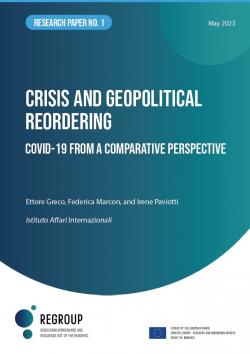Crisis and Geopolitical Reordering. Covid-19 from a Comparative Perspective

This paper aims to assess the impact of recent global crises on the system of international relations. In particular, it examines how the major shocks caused by these global crises have affected long-term trends and to what extent they have shaped the global order. The paper analyses four major global crises: the Covid-19 pandemic, the Global Financial Crisis (GFC), the Russian invasion of Ukraine and climate change. Two long-term global trends – global power shifts and globalisation – have been chosen as the axes around which the main geo-economic and geopolitical implications of these crises will be scrutinised. This analysis shows how each crisis has contributed to deepening trends that had already emerged from previous crises due to the persistence of unsolved issues or to the inadequacy of the efforts undertaken to address them. As a result of repeated and often mutually reinforcing global shocks, the world order is now characterised by high levels of uncertainty, fragility and unpredictability. This highlights the need for new cooperative approaches based on foresight and preparedness that aim at building more resilient political and socio-economic systems.
-
Dati bibliografici
REGROUP Research Papers, No. 1 (May 2023), 31 p.
Tema
Tag
Contenuti collegati
-
Ricerca30/09/2022
REGROUP: Rebuilding governance and resilience out of the pandemic
leggi tutto



